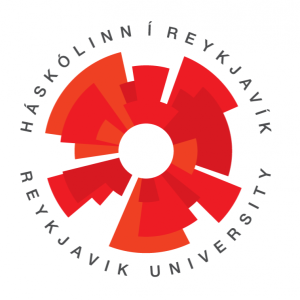
Students at the University of Reykjavík recently conducted an analysis as part of their "catastrophe week" excercise, where Eurovision and Iceland as host of the contest was the chosen subject. The findings of their analysis made for some particularly surprising reading.
"Eurovision nation, your dream’s coming true" sang Silvia Night in the 2006 Icelandic entry Congratulations. Since their debut back in 1986, the small Nordic nation has twice come close to winning the contest; in 1999 when Selma performed All Out Of Luck battling it out against Charlotte Nilsson and her Take Me To Your Heaven for Sweden and in more recent years when young Yohanna took her mournful ballad Is It True? to a second placing behind Norway’s runaway victor Alexander Rybak and his Fairytale.
It has long been the assumption that as a small, remote nation in the middle of the Atlantic Ocean, hosting the contest was highly unlikely, with the honour of hosting the contest handed over to Danish broadcaster DR in the event of a victory. Iceland is still something of an unknown destination to many and it has long been the presumption that the island was completely void of any suitable venue to host the contest. Given the economic crisis that Iceland suffered from 2007-2010, many have held the belief that hosting the contest would be tantamount to further economic ruin for the nation.
However, a recent analysis by students at the departments of Science and Engineering at Reykjavík University dealt with the possible scenario of a Eurovision final in Iceland, during an excercise known as hamfaravikan or "catastrophe week". Students were divided into groups, with the objective of finding out just how feasible hosting the contest would be in Europe’s most northerly capital. The setting for the excercise was Reykjavík, May 2014; not because of the first victory for Iceland, but as the result of yet another Danish win and the EBU deciding to award hosting the event to RÚV and Iceland. Students were asked to look at challenges facing organisers of the event, such as cost, logistics and security.
Students of financial engineering analysed the cost of hosting the event in Iceland. The result: state broadcaster RÚV would suffer considerable financial losses on the project, with the cost for hosting the event only partially being subsidised by sponsors and ticket sales in addition to funding from the EBU. Focus was then spent on finding a suitable venue, in order to maximise ticket sales, thus minimising the financial losses of RÚV. In Malmö, approximately 15,000 tickets were sold. The brand new conference centre Harpa in downtown Reykjavík has a capacity of approximately 1800, thus making it an unviable venue.
Two more venues were taken into consideration; Egilshöll, a multi purpose sport facility in Reykjavík and Fífan, a similar complex in neighbouring Kópavogur. Findings indicated that Egilshöll would indeed best suit the needs of both the event organisers and fans, with a standing capacity of 18,000 and a seated capacity of 15,000, last used for a Roger Waters concert in 2006. The location of Egilshöll was also a deciding factor, resulting in minimal disruption to traffic in residential areas.
After the findings of the excercise were presented, a surprising number of students claimed that they believed Iceland was more than capable of hosting the mammoth event, although fewer maintained that hosting the contest would be particularly favourable for the still vulnerable Icelandic economy. In the eventual outcome of a win for Iceland – and it will happen sooner, rather than later, just look at Finland – it remains to be seen whether or not national pride would take precedence over the sheer cost of such a gargantuan project for one of the smallest countries in Europe.
You might also like to read:



















